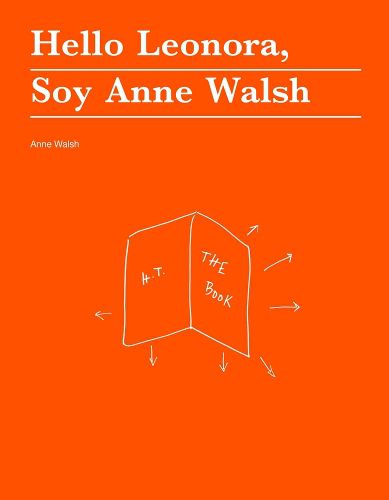Readings Newsletter
Become a Readings Member to make your shopping experience even easier.
Sign in or sign up for free!
You’re not far away from qualifying for FREE standard shipping within Australia
You’ve qualified for FREE standard shipping within Australia
The cart is loading…






Video and performance artist Anne Walsh’s encounter with and multipart response to surrealist painter Leonora Carrington’s novel The Hearing Trumpet.Contributions by Dodie Bellamy, Julia Bryan-Wilson, and Claudia LaRocco Over the past decade, artist Anne Walsh has created an ongoing, multipart response to surrealist painter Leonora Carrington’s novel The Hearing Trumpet (written in the early 1960s, published in 1974). Walsh’s interdisciplinary works, encompassing video, writing, and performance, chronicle her time with the nonagenarian author and, ultimately, her assumption of the identity of the aging artist. Hello Leonora, Soy Anne Walsh is a visual and written adaptation of Carrington’s feminist novella, offering a narrative in fragments- a middle-aged artist named Anne Walsh falls in love with the 92-year-old author of a book about a 92-year-old woman who is placed in a sinister and increasingly surreal retirement home. Walsh courts the author, travels to Mexico to meet her, fantasizes about adapting the book for film, and spends the next decade searching for The Hearing Trumpet’s form and cast. Having discovered in Carrington’s novel a thrilling, subversive example of old age, Walsh casts herself as an Apprentice Crone. She stalks old people and takes selfies with them. She becomes a mother, passes through menopause. She sings her daughter’s Disney movie songs at elder theater classes. She studies and rehearses the trauma, the affliction, the indignity that is old age, and she writes to Leonora Carrington.
The story is told through facsimiles of hand-written letters, annotated research notes, post-it note flow charts, cast lists, scripts, and a photographic e ssay that loosely narrates Walsh’s visits to Carrington in Mexico City, with additional texts by writer Dodie Bellamy, art historian Julia Bryan-Wilson, and poet and critic Claudia La Rocco.
$9.00 standard shipping within Australia
FREE standard shipping within Australia for orders over $100.00
Express & International shipping calculated at checkout
Video and performance artist Anne Walsh’s encounter with and multipart response to surrealist painter Leonora Carrington’s novel The Hearing Trumpet.Contributions by Dodie Bellamy, Julia Bryan-Wilson, and Claudia LaRocco Over the past decade, artist Anne Walsh has created an ongoing, multipart response to surrealist painter Leonora Carrington’s novel The Hearing Trumpet (written in the early 1960s, published in 1974). Walsh’s interdisciplinary works, encompassing video, writing, and performance, chronicle her time with the nonagenarian author and, ultimately, her assumption of the identity of the aging artist. Hello Leonora, Soy Anne Walsh is a visual and written adaptation of Carrington’s feminist novella, offering a narrative in fragments- a middle-aged artist named Anne Walsh falls in love with the 92-year-old author of a book about a 92-year-old woman who is placed in a sinister and increasingly surreal retirement home. Walsh courts the author, travels to Mexico to meet her, fantasizes about adapting the book for film, and spends the next decade searching for The Hearing Trumpet’s form and cast. Having discovered in Carrington’s novel a thrilling, subversive example of old age, Walsh casts herself as an Apprentice Crone. She stalks old people and takes selfies with them. She becomes a mother, passes through menopause. She sings her daughter’s Disney movie songs at elder theater classes. She studies and rehearses the trauma, the affliction, the indignity that is old age, and she writes to Leonora Carrington.
The story is told through facsimiles of hand-written letters, annotated research notes, post-it note flow charts, cast lists, scripts, and a photographic e ssay that loosely narrates Walsh’s visits to Carrington in Mexico City, with additional texts by writer Dodie Bellamy, art historian Julia Bryan-Wilson, and poet and critic Claudia La Rocco.